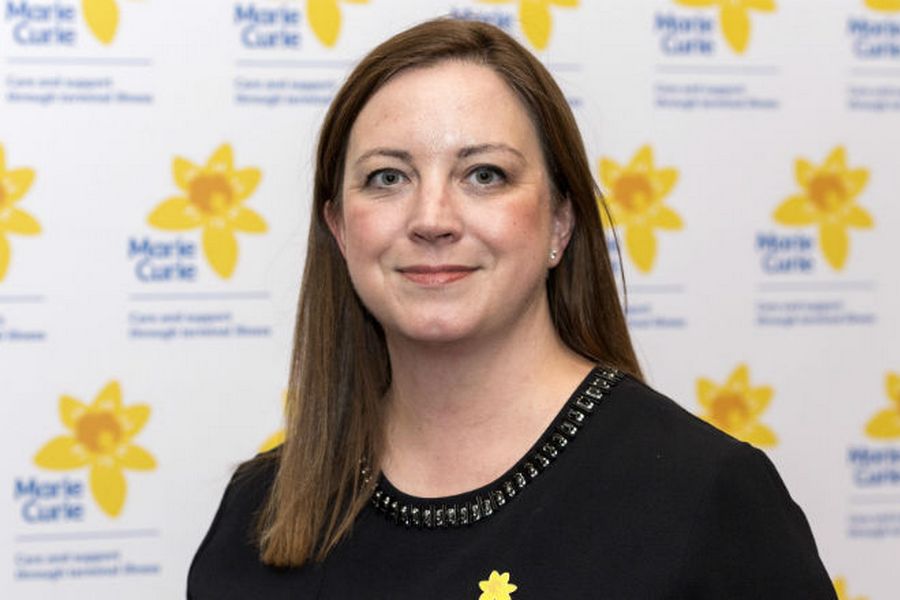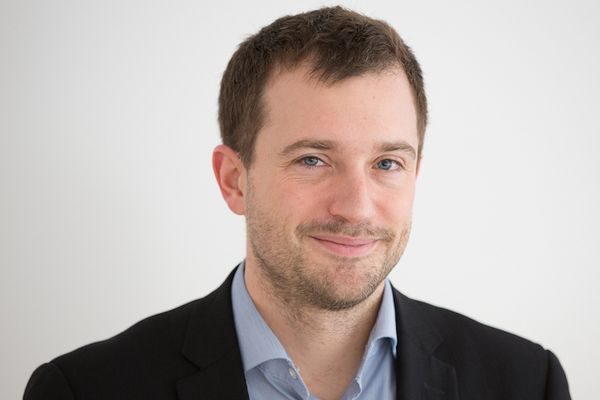
Expert View: How technology continues to boost – and change – fundraising
February 7, 2018
How to engage your board in fundraising
February 7, 2018Central and Eastern Europe has seen huge amounts of change in recent years. What does this mean for civil society? Fundraising Europe interviews Peter Vandor of the Vienna University of Economics and Business (WU Vienna) about his recent research into civil society in Central and Eastern Europe (CEE).
[Fundraising Europe] How has civil society in Central and Eastern Europe (CEE) changed in recent years?
[Peter Vandor] Civil society has certainly changed and developed in recent years, with growth in both the number of organisations and people working in the sector. Our recent study covered 16 European countries, including the Visegrád group, Austria, the former Yugoslavian countries, Albania, Bulgaria, Romania and Moldova. Civil society organisations are more established in Austria than other nations, with 6.5% of the workforce now working in the sector, but we can see real growth across the region.
Back in the 90s, the John Hopkins Center for Civil Society Studies undertook the first comprehensive study in the area, showing that a very small amount of people were employed in the third sector in Central and Eastern Europe. Now, we can see that employment in the third sector has grown massively; in the five countries for which we have comparable data, there’s been an increase of around 80% in terms of the proportion of employed people working within the sector. That represents an impressive increase in overall numbers and also shows how much more professional the sector has become over the past two decades.
What is driving that growth?
To some extent, professionalisation itself is a driving factor. Society has become increasingly reliant on the sector and its services as it grows, building public awareness further around the role and capabilities of charitable organisations, and attracting more people to work in this field. Civil society activities have also become more formal and organised, which means that they are more likely now to be recorded in official statistics.
Clearly, there has been an increase in terms of the underlying economics in CEE countries as well. Generally, with higher levels of income, there is also more disposable income for charitable donations, and for buying products and services from social enterprises.
One major player has been the European Union. I would say that the EU has been a transformational agent not only in providing funding but often by insisting that civil society has a seat at the table in relevant policy negotiations. By doing so, the EU has legitimised the third sector and this sends a clear signal to potential partners and funders of the importance of civil society organisations and structures.
How is the European Union perceived by civil society representatives within CEE countries?
In our study, we found that most of the civil society experts we surveyed had a very positive assessment of the EU’s role. The European Union is perceived as the most positive and most influential actor in the institutional landscape, as it is an enabler of policy dialogue, funding partner and provider of legitimacy. But, their assessments paradoxically were significantly less positive in countries that had already joined the EU.
This can be explained in two ways. On one hand, the room for shaping policy as well as the leverage of the European Union are simply higher in pre-accession countries. On the other hand, as local experts have noted in our survey, the funding requirements of the European Union can make it necessary to undertake bureaucratic processes and this requires greater capacity. Over time, this restricts access to just a few, already well-funded and well-networked organisations.
In terms of regulation of civil society organisations, what trends are you seeing?
The EU as a whole has been really important in creating a strong regulatory framework in new member countries. For pre-accession countries there are thus more or less predictable patterns of how regulation will develop, which is towards more European standards.
At the level of current member states, it’s harder to draw conclusions. In some, the general climate for NGOs is getting much more hostile and that has been a real concern, with particularly restrictive changes in Hungary and, to some extent, Poland too. These new rules breed a sense of distrust around foreign funding and civil society, sending a signal that if you are funding NGOs you are not welcome. At the same time, there have been some real improvements, with greater emphasis on capacity building and Government funding. For example, a number of countries have introduced percentage-tax laws that enable the public to donate a part of their income tax directly to a charitable organisation.
What does all this mean for how civil society is funded in the region?
We see a classic funding pattern and cycle for nations moving into the EU. Initially countries have been dependent on foreign money, given for a set purpose. An extreme example is Kosovo, in which more than 70% of funding for civil society organisations currently comes from foreign donations. Once countries begin talks with the EU and develop a more stable relationship within the Union that can change. Foreign donors pull out, shifting their focus onto other geographical areas where they perceive there to be greater need, leaving civil society to source funding nationally or from the EU.
After accession is completed, national government gradually starts to establish greater autonomy about how it uses and allocates funding. Each transition creates tremendous challenges for organisations and it can be hard to survive these changes.
Our study shows that this concern is currently particularly prominent in the Western Balkans, Moldova and to a lesser degree in Bulgaria and Romania. In these countries, foreign donors are still perceived as dominant (and largely positive) influence on civil society.
With the exception of Austria and – to some extent – the Visegrád countries, domestic giving is not widespread in the region, so many organisations find it difficult to compensate for the lack of financial income.
What are the likely changes to the way funding will be sourced in the future?
There is certainly a need for civil society organisations to diversify their income sources. Domestic giving and philanthropy are likely to become somewhat more important in relation to EU and international funding, along with earned income and social entrepreneurship.
Recent years have seen the development of a number of support organisations, investments funds, capacity building measures and legal instruments for developing social enterprises in CEE. While much of this is in its infancy, it seems to be a rapidly growing area. According to the Global Entrepreneurship Monitor, more than 6% of the working population of Croatia and Hungary are engaged in some form of social entrepreneurship, offering many and often direct funding opportunities.
We also expect that civil society funding in the CEE region will also be affected by the larger global trends, such as the increased interest in crowdfunding and decentralised forms of philanthropy, e.g. through blockchain-based funding platforms. They bear the promise to cut out the middleman and make a shift towards more impact-oriented giving, allowing people to donate directly to the recipient and bypassing established fundraising organisations. It is hard to know at this stage whether such forms of fundraising will really take off, but they seem to reflect a general trend of decreasing public trust in third sector organisations. Given the generally low levels of trust in institutions in CEE, it is likely that such methods could be particularly successful in the CEE region.
How do you think Government (national or EU) can best support the sector?
Essentially, any government needs to provide a safe space for the sector to grow and develop. In some countries in CEE, this includes very fundamental things such as free press, guaranteeing free speech or a stable and fair legal environment.
When it comes to funding, it is important that government supports civil society, but that this is no deathly hug. By this I mean, that it puts in place the right infrastructure to nurture public trust, while giving the sector breathing space. Our experience shows that organisations that rely too strongly on government funding tend to have difficulty in speaking up against the state when needed.
About Peter Vandor
As senior researcher and manager of the Social Entrepreneurship Centre at the Vienna University of Economics and Business, Peter has led 50+ collaborative projects with organisations such as ERSTE Foundation, CERN, UNDP and the Roland Berger Foundation. His research focuses on social entrepreneurship, migrant entrepreneurship and innovation and has been published in the Journal of Business Venturing and Harvard Business Review. Peter is founder and academic director of the Social Impact Award, a capacity building program for young social entrepreneurs in 15+ countries and initiated the first academic and award-winning course on social entrepreneurship in Austria. Peter was nominated as Global Shaper by the World Economic Forum in 2012 and as SCANCOR Visiting Scholar to Stanford University in 2017.



